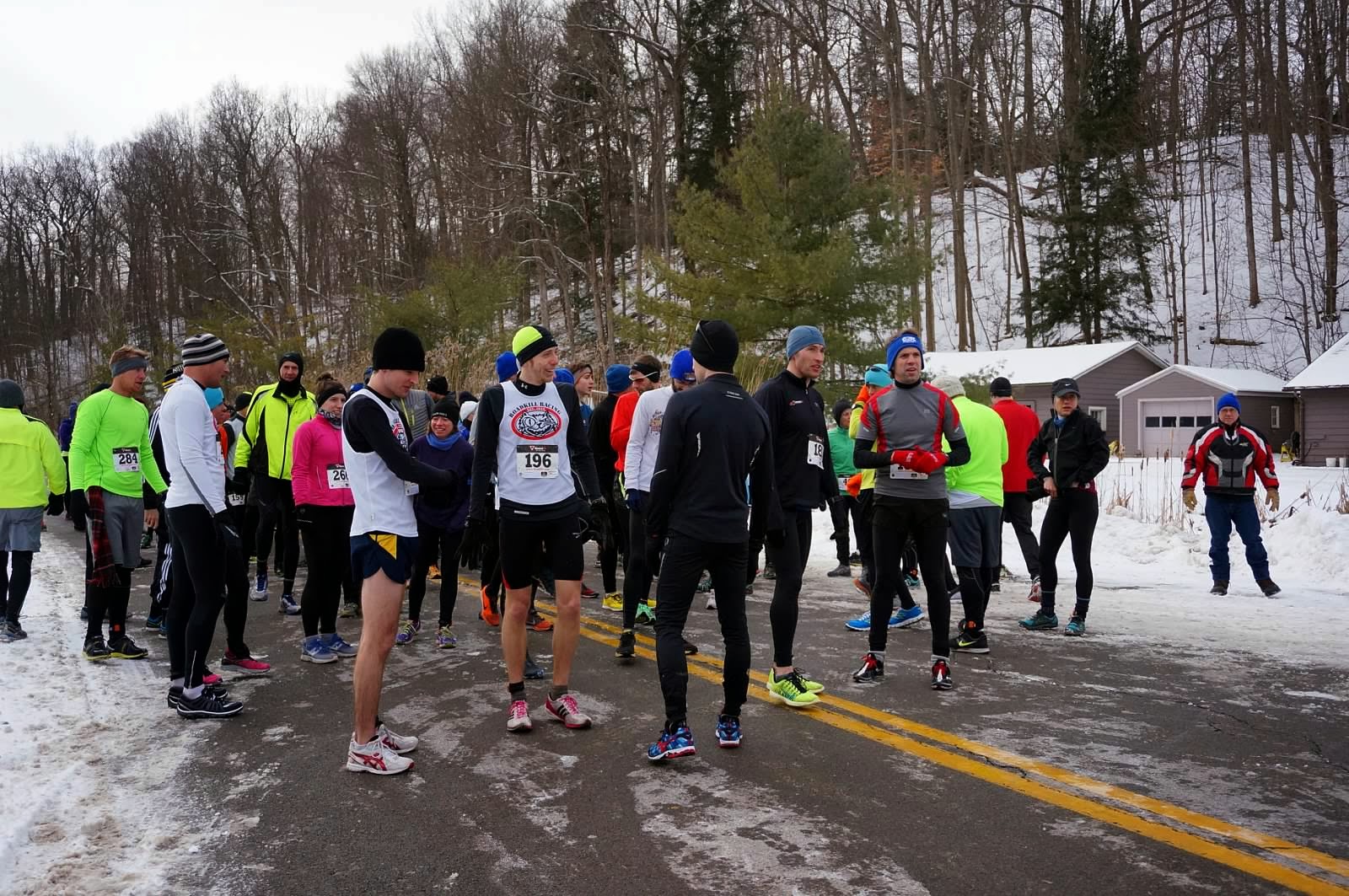 |
| From the beginning of the race last year. This was the coldest race that year (and still not as cold as many of the days this year)...Not sure what was going through my head that day. |
 |
| Joe, Matt, and I hanging out before the race. I got a little smarter this year. Clothes are good. |
 |
| Ready to go! (Kind of) |
 |
| Leading the charge (half-asleep) |
 |
| Thanks to Josh for this elevation graph of the course. It's not flat. Couple that with a stiff headwind for miles 2 and 3, and you don't have a fast course. |
 |
| Trying to finish strongly. |
Thanks to Rochester Runner Pics for the photos!




.jpg)